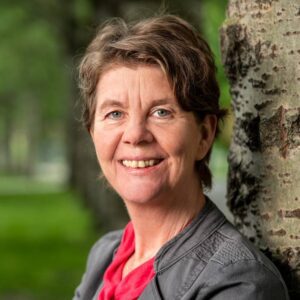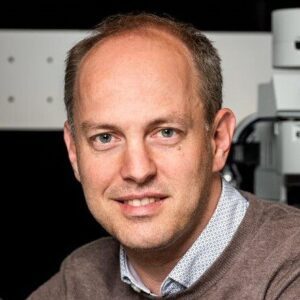
Millions in subsidies for ‘brain atlas’
25 March 2024

25 March 2024
The Institute for Chemical Neuroscience (iCNS) will receive 23.23 million euros from the government as part of the Gravitation programme. The money will be used for the development of a ‘brain atlas’ of psychiatric symptoms. This should pave the way to improving the diagnosis and treatment of neuropsychiatric disorders such as depression, frontotemporal dementia and anxiety disorders. The research will be conducted by a national consortium of universities, UMCs and the Netherlands Institute for Neuroscience.
In our society, one in four people suffer from a brain disorder. ‘For many brain disorders, little is known about the molecular mechanisms underlying them,’ says consortium leader Inge Huitinga, professor by special appointment of Neuroimmunology at the UvA and head of the Neuroimmunology research group of the Netherlands Institute for Neuroscience. ‘The relationship between changes in brain tissue and patients’ symptoms is very complex. We do not really know which types of cells, which brain networks and which molecular processes cause the psychiatric symptoms of patients with a brain disease. Some symptoms occur in various conditions and the clinical picture can look very different from patient to patient. For example, someone may have Alzheimer’s or frontotemporal dementia, but also develop depressive symptoms. That can lead to incorrect diagnoses.’
Maarten Kole (group leader at the Netherlands Institute for Neuroscience and also involved in the consortium): “We believe that psychiatric symptoms are related to changes occurring in individual cells, particularly between the supportive (glial) cells and nerve cells. There is increasingly more brain material available from people with psychiatric disorders to investigate this issue. Meanwhile, in chemistry and molecular biology, various promising techniques have emerged, such as single-cell transcriptomics, (chemical) proteomics, advanced microscopy, and ‘click chemistry’. These could fundamentally change research into the human brain.”
“By pooling forces across different disciplines, including neurobiology, chemistry, data science, and psychiatry, we hope to ultimately gain more clarity on what exactly happens in the cells and bring this together into a molecular ‘brain atlas’. The goal is to develop biomarkers for the diagnosis, prognosis, and ultimately treatment of the brain disorders that affect many people. If we better understand what exactly goes wrong in the brain, we can soon measure it in the blood or with PET scans to determine what is happening. This can lead us towards a more personalized approach, also known as ‘personalized medicine’.”
In contrast to traditional brain research, the researchers in iCNS start with human brain material from the Netherlands Brain Bank (NHB). They are also setting up a biobank with cerebral fluid and plasma from living patients with a brain disorder. The molecular brain atlas will be created using so-called multi-omics, which will study sixteen important brain areas of neuropsychiatric disorders in great detail. Using new computer approaches and machine learning models, the researchers will link the multi-omics data to the psychiatric symptoms of around 3,000 NHB donors.
Huitinga: “‘We can then use innovative chemical methods to see what has changed when certain symptoms are present and how we can influence or correct this in in vitro and in vivo model systems, such as brain organoids. This large-scale and interdisciplinary approach of the new Institute for Chemical Neuroscience has the potential to lead to groundbreaking insights, which are much needed.”
Consortium
The Board of Directors of iCNS is formed by: Inge Huitinga (Netherlands Institute for Neuroscience, UvA), Paul Lucassen (UvA), Mario van der Stelt (Leiden University), Bart Eggen (UMC Groningen), Lot de Witte (Radboudumc) and Maarten Kole (Netherlands Institute for Neuroscience/Utrecht University). The research leaders of the sub-projects are: Jörg Hamann (Amsterdam UMC), Inge Holtman (UMC Groningen), Ahmed Mahfouz (LUMC), Sander van Kasteren (Leiden University), Aniko Korosi (UvA) and Femke de Vrij (Erasmus MC).
More than 160 Million
In this round of the Gravitation program, a total of seven consortia with scientists from various Dutch universities will receive funding for their research projects. A total of 160.5 million euros will be awarded.
About Gravitation
The Gravitation programme allows researchers to conduct high-level university research in multidisciplinary collaborations for ten years. One of the pillars of the programme is collaboration across disciplines and universities. The scientists set up scientific research programmes in consortia. The aim of Gravitation is to promote the formation of centres of top-level excellence. The Gravitation programme is administered out by the Dutch Research Council on behalf of the Ministry of Education, Culture and Science.


The Friends Foundation facilitates groundbreaking brain research. You can help us with that.
Support our work